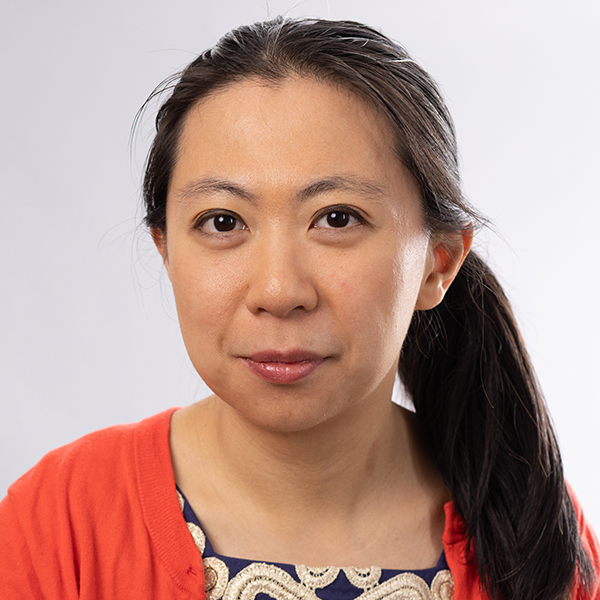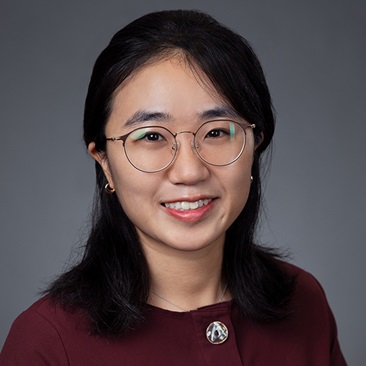full-time faculty teaching and conducting research in political science
of Maxwell faculty conduct research focused outside of the U.S.
graduate students in residence; fewer than 12 admitted each year
Undergraduate Studies
Graduate Studies

I am Maxwell.
Civic engagement is a core value for me. I have always aspired to help the communities I’m from.” Mazaher Kaila, a Maxwell alumna and third-year student at Syracuse University's College of Law, moved with her family from Sudan to Central New York when she was four years old. “I realized that to make meaningful change in society, I needed to understand the systems that power it—government and politics—and that’s insight I would gain by studying political science.”
Mazaher Kaila ’19, L’22
political science, law
Ryan Griffiths Receives NSF Grant to Research Global War Patterns
August 17, 2023
The professor of political science will focus on historical trends of intrastate and interstate battles since the 18th century.
Ryan Griffiths, professor of political science, has received a $442,321 grant from the National Science Foundation (NSF) in support of his research on global war patterns.
Griffiths is the principal investigator on the three-year project, titled “Global Patterns in Interstate and Intrastate War Since 1750.” The project falls under NSF’s umbrella of security and preparedness research and seeks to fill in the gaps on global war data between and among states since the 18th century.
Griffiths’ particular focus on global patterns seeks to address how “data-driven work on conflict prior to the early 20th century is centered on Europe and ignores hundreds of independent states in other parts of the world,” says Griffiths.
Beyond creating a publicly available conflict dataset, Griffiths’ aim is to analyze the frequency of war over time around the world and determine if certain regions of the globe are more peaceful than others. He is also interested in the frequency of war fought within a state compared to war fought between states, and whether one type has increased over time more than the other.
Griffiths’ NSF project model will build out his previously conducted research from the International Systems Dataset, a multi-part register of 482 sovereign states’ development from 1816 until 2016, by adding historical data on combatant and battle fatalities. He hopes the project will ultimately contribute to academic understanding of the causes of war and long-term trends in warfare.
Griffiths is the research co-director of international and intra-state conflict through the Program for the Advancement of Research on Conflict and Collaboration.
By Sophia Moore
Related News
Commentary

Jul 19, 2024
Commentary

Jul 5, 2024
Commentary

Jul 2, 2024
BaoBao Zhang Joins First Cohort of AI2050 Early Career Fellows
One of only 15 scholars chosen from across the U.S., Zhang will receive up to $200,000 in research funding over the next two years. Zhang will use the funding to partner with the nonprofit, non-partisan Center for New Democratic Processes to test whether public participation in AI governance is increased through the creation of public assemblies, known as “deliberative democracy workshops.”
Baobao Zhang
Assistant Professor, Political Science Department

Ryan Griffiths Receives NSF Grant to Research Global War Patterns
August 17, 2023
The professor of political science will focus on historical trends of intrastate and interstate battles since the 18th century.
Ryan Griffiths, professor of political science, has received a $442,321 grant from the National Science Foundation (NSF) in support of his research on global war patterns.
Griffiths is the principal investigator on the three-year project, titled “Global Patterns in Interstate and Intrastate War Since 1750.” The project falls under NSF’s umbrella of security and preparedness research and seeks to fill in the gaps on global war data between and among states since the 18th century.
Griffiths’ particular focus on global patterns seeks to address how “data-driven work on conflict prior to the early 20th century is centered on Europe and ignores hundreds of independent states in other parts of the world,” says Griffiths.
Beyond creating a publicly available conflict dataset, Griffiths’ aim is to analyze the frequency of war over time around the world and determine if certain regions of the globe are more peaceful than others. He is also interested in the frequency of war fought within a state compared to war fought between states, and whether one type has increased over time more than the other.
Griffiths’ NSF project model will build out his previously conducted research from the International Systems Dataset, a multi-part register of 482 sovereign states’ development from 1816 until 2016, by adding historical data on combatant and battle fatalities. He hopes the project will ultimately contribute to academic understanding of the causes of war and long-term trends in warfare.
Griffiths is the research co-director of international and intra-state conflict through the Program for the Advancement of Research on Conflict and Collaboration.
By Sophia Moore
Related News
Commentary

Jul 19, 2024
Commentary

Jul 5, 2024
Commentary

Jul 2, 2024

